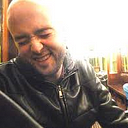Scientists uncover bacterial role in growth of key insect feed species
Originally published on Farming Future Food
Scientists have identified a bacterium that has a significant role in how black soldier fly larvae utilise feeding materials to grow and develop — which could lead to improvements when the insects are used in bioconversion of waste products to valuable proteins, used as alternative feed and food products.
The team, led by Luo Xingyu at the Chinese Academy of Sciences, isolated a number of bacteria from the guts of black solider fly larvae and tested their impact on growth when previously bacteria-free larvae were inoculated via their diets.
Diets considered ‘rich’ and ‘poor’ were fed to the larvae, and the scientists observed the strongest growth when the diets included Citrobacter amalonaticus. Growth performance when associated with bacterium was stronger than when using conventional rearing approaches, regardless of the overall quality of the diet.
Genetic origins of relationship probed
Part of the reason for the growth effect was fermentation of the wheat bran used in the diet by C. amalonaticus, the team discovered. However, the species of bacterium alone had a stronger overall effect on growth, meaning that other factors must be involved in its growth-promoting impact.
They went on to perform further tests on the bacterium, determining that it successfully colonises the gut at all larval stages. Molecular analysis revealed that 1,381 genes were expressed differently in larvae associated with C. amalonaticus, and the differing areas were predominantly associated with metabolism of fats, carbohydrates and amino acids, with genetic pathways for protein enrichment particularly prominent.
Using RNA interference, (RNAi), a form of gene silencing, the team sought to further understand the symbiotic relationship between the bacterium and the insect. They found that it promoted the expression of two gene families associated with protein metabolism.
Bacterial potential could be tapped
At present, the substrates that can be used to develop black soldier fly commercially are limited, but with the possible inclusion of new inputs for bioconversion in future, ways to maximise conversion efficiency are much sought-after.
“Given the importance of gut microbiota during BSFL-mediated bioconversion, our work… expands the genetic toolkits to study BSF functional genomics and host-microbe interaction and provides the prospective for the future application of gut microbiota on BSFL-mediated bioconversion,” the researchers concluded.
